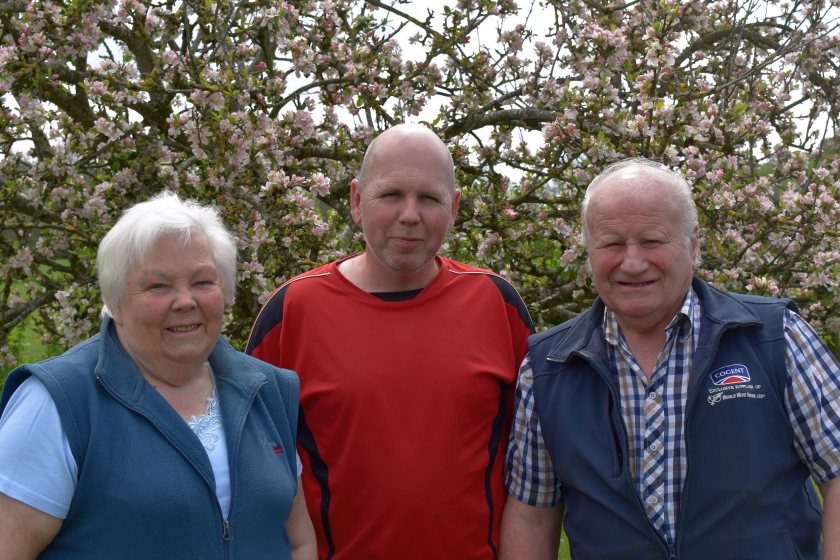
A Welsh tenant farming family say they fear for their future due to 'eye watering costs' needed to comply with new controversial water pollution rules.
Bryan and Susan Jones, along with their son Andrew, farm at Coedyparc, Caersws, Powys, a 105-acre all grassland farm which is home to a 85 strong closed dairy herd.
According to the family, their landlord is unwilling to foot the bill for the costly capital works required to be compliant with the new regulations.
The banks are also not lending money for works carried out on tenant farms, the Jones' say.
Starting from 1 April, a nitrate vulnerable zone (NVZ) designation was gradually introduced across the whole of Wales.
Agricultural pollution incidents 'remain very high', according to the Welsh government, averaging over three per week in the last three years.
But farming groups such as NFU Cymru have slammed the 'heavy and disproportionate' rules for 'punishing' the whole farming industry.
The Jones', who have been farming at Coedyparc since 1973 on a lifetime tenancy agreement, now warn that the new regulations could spell the end of their livelihoods.
Bryan Jones said: "We have never had a pollution incident here. NRW [Natural Resource Wales] through their own assessment have confirmed that there is no pollution here.
"But we still need to comply with these new regulations and carry out works at eye watering costs which will be in the region of £70,000. Who is going to pay for that?"
He explained that the landlord had 'refused' and the bank wouldn't lend them the money to carry out work on a property they didn't own.
"I’m at my wits end and fear that in three years time this could very well be the end of our farming life here," he said.
Mr Jones said he had no objection to a polluter pays policy, but the new rules could 'cripple' the industry if nothing was changed.
He called on the Welsh government to consider the financial implications of the new rules on small farm businesses and tenant farmers 'as a matter of urgency'.
Mrs Jones added that she was worried for those family farms who were not in a financial position to comply.
“Our family farms are the beating heart of our rural communities... Losing farms and losing cattle from the area will have far reaching consequences," she said.
"The direction these policies are going is a direct threat to our way of life, the rural economy and the safe, reliable and sustainable food supply.
"We are in an impossible situation and I’m worried about the future of our industry and the next generation of farmers, especially where tenant farmers are concerned."
